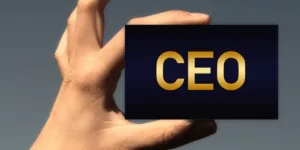One of the first lessons I learned in college studying business was how companies often don’t know what industry they are in. The example was made using horse carriage makers during the 1800s. The companies that made the carriages thought they were in the “horse carriage” industry. When automobiles showed up, most carriage makers went under because they didn’t realize they were in the personal transportation industry. They had defined their business too narrowly.
Often, CEOs aren’t selected with that understanding under the mistaken belief that a CEO is so flexible that they can run a company in any industry. This isn’t true. If you don’t understand the unique nature of the business, it’s unlikely you’ll be able to set a strategy for success. To use a sports metaphor, it would be very difficult for a tennis coach to be successful as a soccer coach. They’d get motivation, but there would be a long learning curve on the team dynamics, core skills, body types, and strategies unique to the new sport.
The reason Musk is failing with Twitter is that he isn’t the right CEO, but I’ll bet whoever replaces him will fail for two reasons. First, and most concerning is that Musk won’t want the guy to succeed and show him up. Second, he’ll select someone that doesn’t know the industry that Twitter is in, which is advertising, not “social media.” The industry you are in is defined by what generates your income. Social media is the vehicle to generate ad revenue, which puts it in the ad business. If they charged rather than used ad revenue to keep the lights on, they’d be in the services industry with a focus on social media.
Services vs. ads
This brings up the first decision that would need to be made: Should Twitter remain in the ad business or transition to a services business? This decision needs to be made before the new CEO is selected because those two skill sets will be very different. In the ad business, you focus on the advertiser and optimize the offering to increase the effectiveness of the related ads to maximize ad revenue. In the services business, you focus on making the users more productive and the service more efficient.
For instance, with an ad model, you want people on the page as long as possible because you are working to increase the sales of anything being advertised. With a services vector, you might instead reduce the time on the page to increase the productivity of the user. The two priorities would be opposed based on the strategic focus of the company.
Assuming Twitter wants to remain ad-focused (which isn’t working well at all at the moment), this would suggest the CEO should be an advertising expert, particularly one who has stood out successfully using social media. The advantages of going this route include a better understanding of what advertisers need and aren’t getting from Twitter, the ability to talk to advertisers in their language and with a full understanding of their unique needs, and the ability to create a vision for the company that will be competitive and increase the firm’s ability to generate revenue over time.
The core reason why Musk is failing is that he doesn’t understand advertising. He isn’t good with people at scale, and advertising is a people business.
Secondary considerations
While Twitter is in the advertising industry, the vehicle being used is technical and specifically requires the use of coders experienced in web technology. This means the advertising CEO that would be favored would not only be one that was experienced with social media but has managed developers before.
If you have one and not the other, then you get a strong vision but weak execution. A company needs execution as much as it needs vision. When Bill Gates selected Steve Ballmer as his successor, he was trying to mitigate a similar problem by also selecting a Chief Architect who could make up for Ballmer’s lack of developer knowledge. That didn’t work because Ballmer saw the Architect as more of a threat to his leadership than a tool that bridged his skill gap. Gates’ strategy would have worked had Ballmer picked his own Chief Architect with Gates’ help so that the ability to work together was prioritized. In other words, Gates had the right idea but failed to execute it correctly. Vision plus execution isn’t multiple-choice. You need both to be successful.
Wrapping up: Musk may force failure
CEOs often have huge ego problems and too often seem to pick a successor that they know will underperform so that they aren’t overshadowed by that new CEO. Steve Jobs obviously did that with Tim Cook. While Cook significantly exceeded all expectations and has arguably overshadowed Jobs in terms of execution, Apple isn’t the power it once was, and many of the aspects of Steve Jobs’ Apple have been lost to time. Jobs was better with vision and marketing and Cook at execution. Apple’s continued success showcases that if you had to lose one of those two skill sets, the execution skill set is the most important to retain.
My sense is that rather than pick a CEO that has the right skill set to succeed, Musk will instead pick one that is more likely to fail so he doesn’t take the ego hit resulting from the new guy doing a better job. While ill-advised, Musk’s comments indicate he believes he is the only one who can fix Twitter, and he is likely to attempt to prove that by selecting the wrong replacement so he can make his point.
In short, what Twitter needs is a social media marketing expert with developer skills. What they’ll get instead is a CEO that has been set up to fail so that Musk can prove that no one can fix Twitter other than Musk. Subsequent analysis will likely show that Musk will demonstrate that he should have never been a CEO in the first place.








